
In the world of skincare, understanding the difference between a toner and a serum helps you to better develop an effective skincare routine; both are skincare products that work, but they do different things.
A toner is a liquid, while a serum is a thicker gel or oil-like consistency, and toners can help balance the pH of the skin, while serums support specific skin concerns such as wrinkles, moisturizing or brightening
Let's dive into the differences and benefits of serums vs. toners, exploring their uses, types, and what benefits they offer and whether you need them.
Toner is a liquid skincare product designed to cleanse and exfoliate the skin, balance skin pH and excess sebum secretion.
Toners are great to use after washing your face and before moisturizing, as they help prepare the skin for the application of other products, making your face look smoother and tighter.
The different stages of your skincare routine depend largely on the formula of the toner, which benefits your skin in a variety of ways. Common ingredients: witch hazel, rose water, aloe vera, hyaluronic acid, coconut, cucumber, rose water, green tea, tea tree, vitamin C, AHA (alpha hydroxy acid) and BHA (beta hydroxy acid), etc.
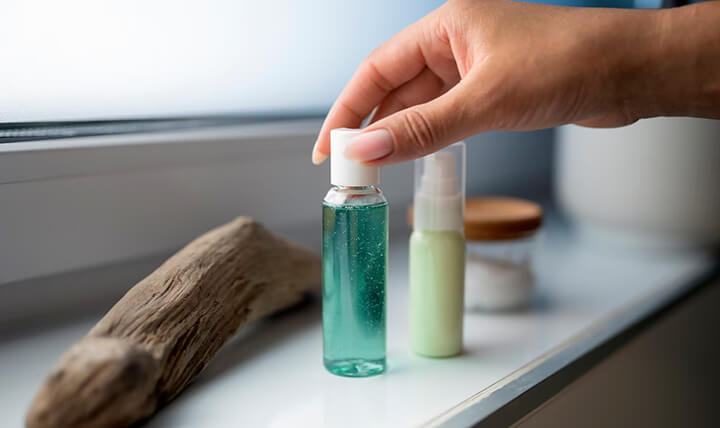
Toners are an essential but often overlooked step in your skincare routine. They provide multiple benefits beyond just cleansing the skin.
Toners help remove impurities and excess oils that remain after cleansing and improve the skin's texture. This prevents clogged pores, reduces the incidence of acne, and leaves your skin looking smooth and refined.
Hydrating toners, especially those with ingredients like hyaluronic acid, lock in moisture and combat dryness. This keeps your skin soft, plump, and radiant, preventing peeling or dullness.
For those with oily skin, toners regulate excessive sebum production. By cleansing pores, they help control shine and minimize acne breakouts, keeping your skin balanced and fresh.
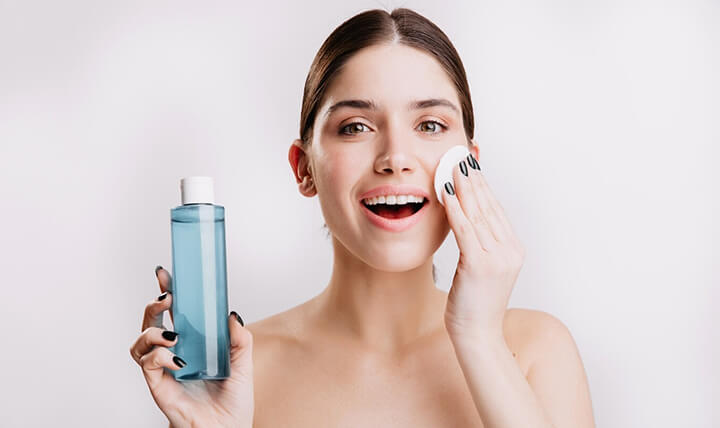
Mild, alcohol-free toners with ingredients like witch hazel or chamomile have anti-inflammatory properties that calm redness and soothe irritated or sensitive skin.
Toners can repair UV-damaged skin and minimize dark spots and blemishes while promoting a more even skin tone. They also maximize the effectiveness of your skincare by allowing your skin to better absorb serums and moisturizers.
Some toners help tighten pores and improve skin elasticity, creating a smooth base for makeup application. This improves your skin's appearance and prolongs the duration of the makeup application.
Serums are highly concentrated skincare products that address skin concerns such as dark spots, wrinkles, fine lines, and hyperpigmentation. Unlike other skincare products, serums are lighter and more easily absorbed, penetrating deeper into the skin to deliver active ingredients where they are needed most.
Serums are usually water-based, gel-like, or oil-based, depending on their purpose. They are lightweight and easy to layer without clogging pores, making them ideal for most skin types.
Common ingredients in serums:
Vitamin C (brightens skin tone and reduces dark spots), Retinol (fights signs of aging such as fine lines and wrinkles), Hyaluronic Acid (profoundly moisturizes and plumps skin), Niacinamide (evens skin tone and minimizes pores)
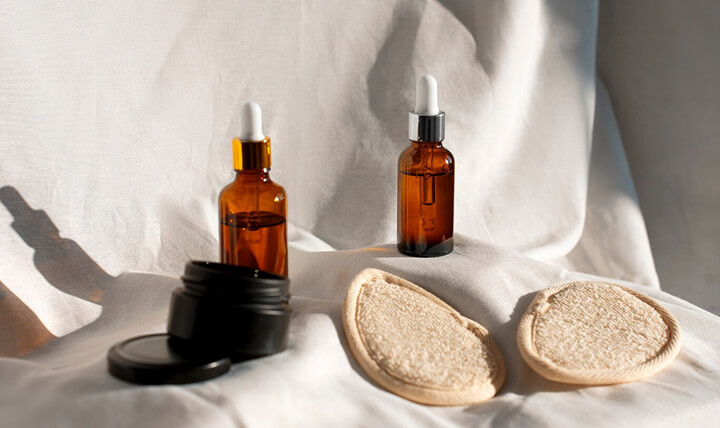
Serums are formulated to precisely address specific skin concerns. Whether lightening hyperpigmentation, reducing wrinkles, or unclogging pores, serums penetrate deep into the skin to deliver visible results.
Moisturizing serums are rich in ingredients like hyaluronic acid, which locks in moisture and fights dryness. They leave skin feeling soft, smooth, and revitalized without a greasy feeling.
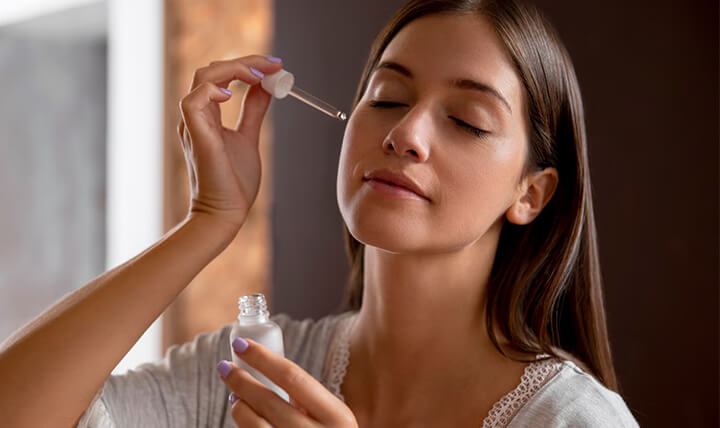
Brightening serums usually contain Vitamin C, which helps minimize dullness and dark spots, leaving skin with a bright, even glow over time.
Thanks to ingredients like Retinol and peptides, serums have excellent anti-aging effects. They help minimize the appearance of fine lines, enhance firmness, and improve skin elasticity.
Serums have a thin texture that absorbs quickly into the skin, making them ideal for use with other skincare products. They don't feel heavy or clog pores and are suitable for oily, combination, and sensitive skin.
The serum improves skin texture, reduces unevenness, minimizes large pores, and makes skin smooth and refined.
Toners and serums have different benefits for various skincare concerns and they can be combined in your skincare routine to work together. Both are good for your skin!
A toner refreshes the skin, helps to balance and moisturize the skin, tightens pores and improves the skin's texture, works on the skin's surface and prepares the skin for better absorption of subsequent skin care products.
A serum provides enough moisture to plump the skin's surface, delivering effective active ingredients that work on the inside of the skin to address specific skin concerns and skin types.
| Feature | Toner | Serum |
| Texture | Light and watery | Thicker, usually gel, liquid, or oil-based |
| Main Function | Cleanses, balances pH, and prepares the skin for follow-up care | Targets specific skin concerns (e.g., anti-aging, brightening, hydration) |
| Order of Use | Apply toner after cleansing | Apply serum after toner and before moisturizer |
| Application | Use with a cotton pad or spray | Apply with fingertips and massage into the skin |
| Absorption | Quick absorption, provides basic hydration | Deep absorption, targets specific issues for repair |
| Key Ingredients | Glycerin, aloe vera, plant extracts, exfoliating acids (AHA, BHA) | Vitamin C, hyaluronic acid, peptides, retinol, antioxidants |
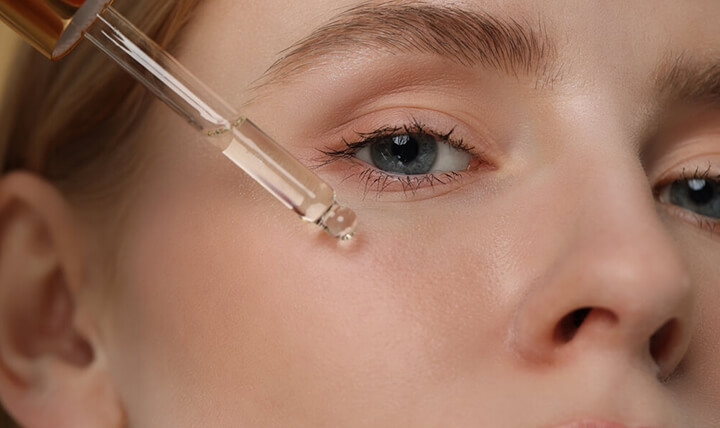
When it comes to toners and serums, the order matters!
Toner is applied after you wash your face, followed by moisturizer and serum, and its primary purpose is to set the stage for the next step in your skincare regimen by balancing the pH level, removing any residual impurities, and laying the foundation for the next step in your skincare routine.
Toner purifies the skin by wiping away makeup residue and other impurities. It also conditions pores and removes excess sebum from the skin without drying it out!
Carry a toner with you to stay refreshed! A quick application or spritz can help minimize oiliness or provide much-needed hydration when skin feels greasy or dry.
Serums should be applied after toner and before moisturizer as a concentrated treatment for specific skin concerns.
Whether addressing fine lines, dark spots, or dullness, serums are rich in active ingredients that penetrate deep into the skin to produce results.
In the morning, opt for a moisturizing serum that contains ingredients such as hyaluronic acid to plump and nourish the skin. At night, use a more effective serum, such as one containing retinol, to address issues such as wrinkles or uneven skin tone. Nighttime use allows your skin to repair and rejuvenate while you sleep.
Using both a toner and a serum in your skincare routine can boost the effectiveness of your skincare regimen, as each product has unique benefits. Here's how to effectively use them in combination:
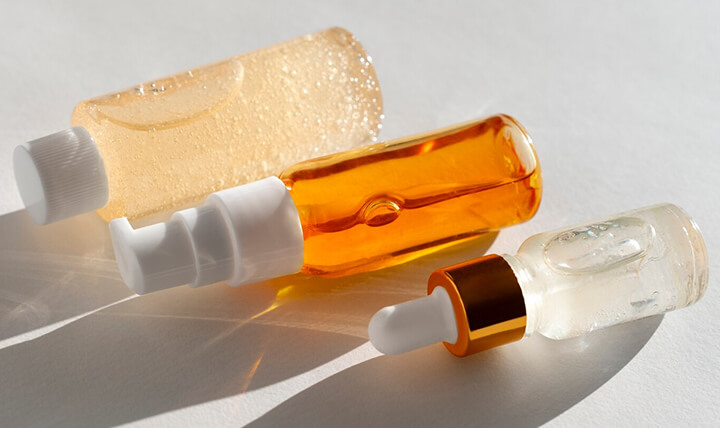
1. Start with cleansing
Cleanse your face thoroughly to remove dirt, makeup, and excess oil in your skincare routine. This prepares the skin to absorb the benefits of toners and serums.
2. Apply Toner
After cleansing, use a toner to rebalance the skin's pH and provide a light, moisturizing base. Apply Toner with a cotton pad or gently pat it onto the skin with clean hands. If your Toner contains active ingredients such as AHA or BHA, ensure it is compatible with your skin type to avoid irritation.
3. Allow Your Skin to Absorb the Toner
Allow the Toner to fully absorb or evaporate. If your skin feels damp, gently pat dry with a towel for better application of the Serum.
4. Apply Serum
Next, apply a serum that targets your skin's concerns - moisturizing, anti-aging, brightening, or acne control. Serums are more concentrated, so only a tiny amount is needed. Tap or press gently for optimal absorption.
For sensitive skin, avoid toners and serums with similar active ingredients, such as AHA or BHA, to prevent over-exfoliation. Instead, pair a gentle toner with a more active serum and vice versa.
Always apply products from thinnest to thickest consistency to maximize absorption.
By following this simple routine, you can enjoy the benefits of both Toner and Serum without overloading your skin.

Toners and serums are two powerful skin care products that provide different services to your skin. The decision to use a toner versus a serum or both depends on what you're looking for in skin care; there's no real sense of who's better; both play their role in the skin!
Ready to start boosting your serum and toner skincare business? Xiran Skincare is a professional skincare manufacturer in China with 15 years of experience in helping many brands boost their profits with private label serums and private label toners to create their exclusive product lines!
Xiran Skincare has passed many certifications, such as GMPC, ISO 22716, BSCI, FDA, MSDS, etc. We are committed to producing high-quality natural and organic products and are proud to serve our customers in North America, Europe, Africa, Asia, and Oceania; if you have any other questions, please contact us; we are happy to help! Problem-Solving

